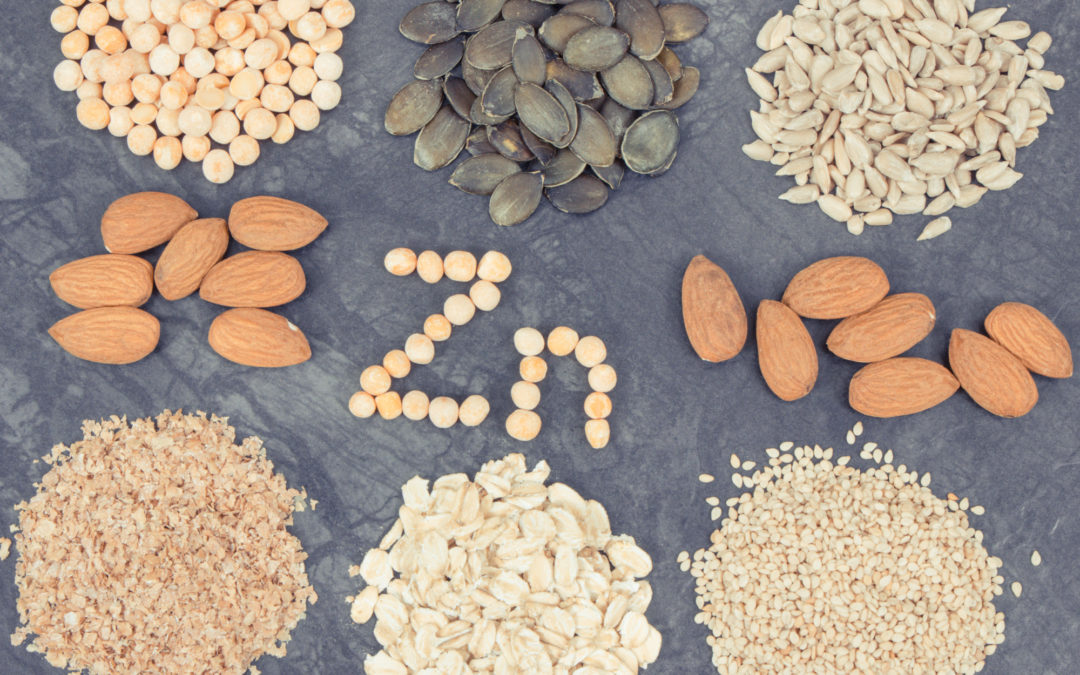Zinc is an essential trace mineral that plays an important role in your immune health. According the the National Institutes of Health, “Zinc is involved in numerous aspects of cellular metabolism. It is required for the catalytic activity of approximately 100 enzymes and it plays a role in immune function, protein synthesis, wound healing, DNA synthesis, and cell division.” Zinc is an antioxidant, anti-inflammatory and antiviral agent. It has been shown to lesson the severity of the common cold by boosting white blood cells and interfering with the attachment of rhinoviruses to our cells.
According to Dr. Michael Greger, “researchers have found that zinc is indeed beneficial in reducing both duration and severity of the common cold when taken within the first twenty-four hours of symptom onset. Zinc lozenges…appear to shorten colds, by about three days…with significant reductions…in nasal discharge and congestion and hoarseness, and cough.” He goes on to recommend “…lozenges containing around 10 to 15 milligrams of zinc taken every two waking hours for a few days, starting immediately upon symptom onset, as either zinc acetate or zinc gluconate without zinc binders such as citric acid, tartaric acid, glycine, sorbitol, or mannitol may work best.”
In a recent study published this month, “Zinc against COVID-19? Symptom surveillance and deficiency risk groups,” researchers determined that “zinc should be included as part of preventative supplementation for COVID-19 and in general for support of immune health.” They conclude that “zinc provides a safe and cheap alternative to enhance immunity worldwide, both to correct chronic nutritional deficiencies and to address acute deficiencies resulting from a viral infection and host immune response.”
Zinc is not stored in the body and therefore required in our daily diet. Zinc absorption diminishes as we age and deficiency is frequently found in elderly patients. Symptoms of zinc deficiency include loss of appetite, unexplained weight loss, wounds that won’t heal, lack of alertness, decreased sense of smell and taste, and diarrhea.
Plant-based sources of zinc include legumes, grains, nuts, seeds, oats and tofu. It is often added to fortified foods and is available as dietary supplement. According to the NIH, “phytates—which are present in whole-grain breads, cereals, legumes, and other foods—bind zinc and inhibit its absorption. Thus, the bioavailability of zinc from grains and plant foods is lower than that from animal foods, although many grain- and plant-based foods are still good sources of zinc.” Soaking, fermenting, sprouting and cooking beans, grains and seeds reduces the phytates, thus increasing zinc bioavailability.
The current RDA (Recommended Daily Allowance) of zinc is 11 mg for adult males and 8mg for females with 40 mg of zinc a day to be the upper limit dose for adults. When purchasing supplements, it is important to make sure that the supplement company uses third party quality control testing and clearly identifies the nutrient sources.

